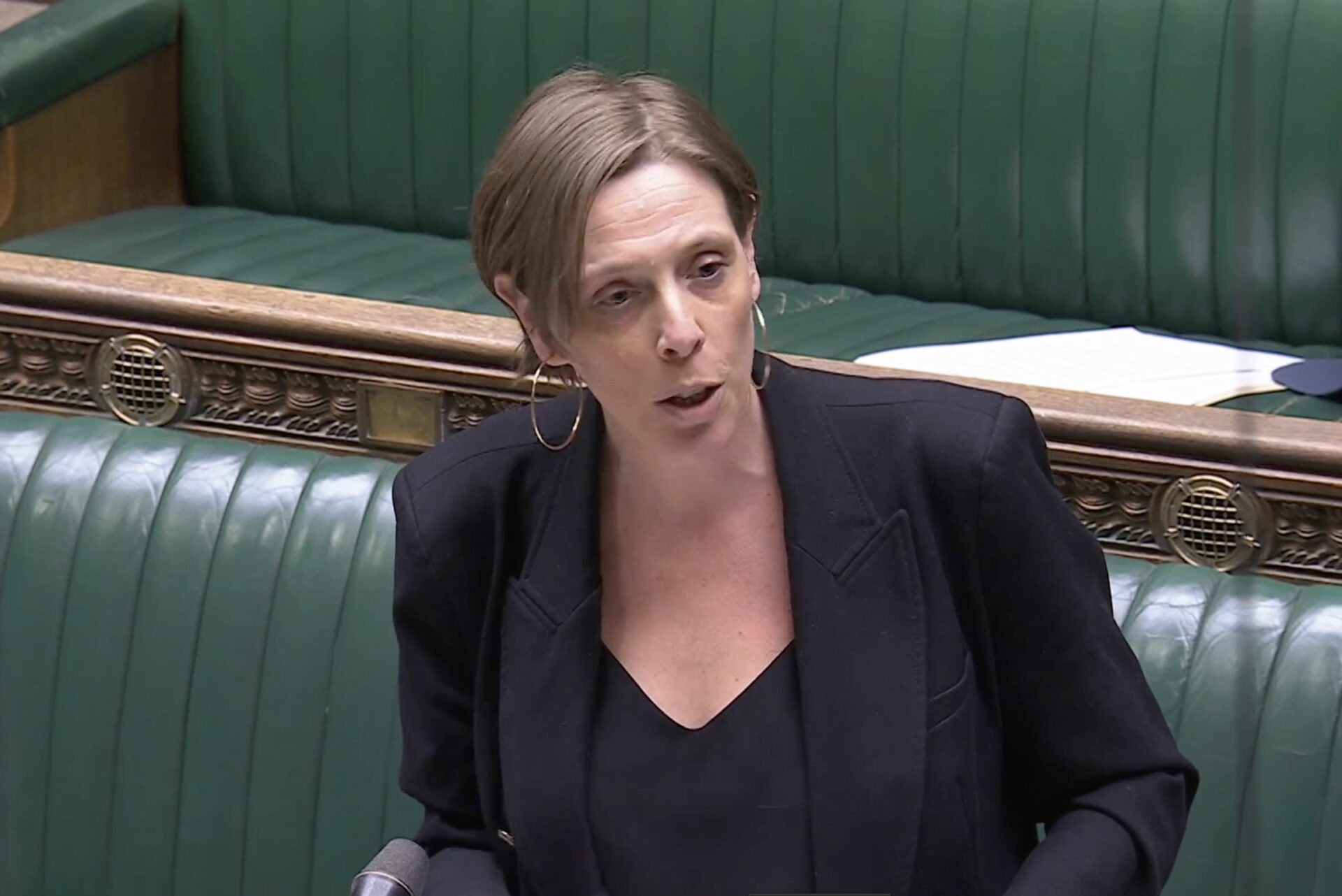When Safeguarding Minister Jess Phillips addressed a nearly empty House of Commons yesterday, she tackled one of the most explosive issues in British politics: child sexual abuse. Yet the timing of her statement — discreetly scheduled for the last sitting day before the Easter recess, with MPs informed barely an hour in advance — signalled clearly that the Government is seeking to evade any meaningful scrutiny.
The content of her speech revealed precisely why: what was supposed to be a comprehensive update on Labour’s action against child sexual abuse amounted to little more than a dilution of the already inadequate measures announced in January.
Phillips’s speech received immediate criticism in the chamber from Conservative MPs Robbie Moore and Katie Lam. The latter’s forceful rebuttal quoted graphic details from court transcripts, and directly questioned whether the Government would admit the crimes were racially motivated. Yet Phillips dismissed Lam’s concerns, claiming that focusing on ethnicity in grooming gangs ignores findings supposedly settled by the Independent Inquiry into Child Sexual Abuse (IICSA), which was published in 2022. This position, however, is misleading at best.
None of the IICSA report’s 20 recommendations were implemented. For this reason, as well as the fact that it took seven years and £6 million to complete, the likes of Phillips deny that a new national inquiry is necessary: we’ve already done the work, they suggest, so why should we waste time doing it again?
If you want to deliver useful and actionable recommendations in a report, you need to carefully and methodically approach one question at a time. But the IICSA report is the opposite, blending familial, institutional, online, and gang-based abuse into a generalised picture of systemic failure, then attempting to compress them into a set of 20 recommendations.
It’s obfuscation by aggregation: crucial distinctions between types of abuse and the communities in which they flourish are entirely absent. Considering the undeniable pattern in high-profile cases from Rotherham, Rochdale, Huddersfield, and Telford — where predominantly South Asian Muslim men systematically targeted vulnerable white girls — ignoring ethnic dimensions can only be intentional evasion.
Methodologically, the report is weakened by its own admitted data gaps. Ethnicity is not consistently recorded in local cases; national-level statistics are similarly unreliable, with ethnicity going unrecorded in 28-86% of cases. There is no current investigation into policing practice around the collection of ethnicity, and why it appears to be in decline. In most democracies, the state publishes offender demographics for serious crimes. In Britain, the most reliable data on grooming gangs has come not from police or Government agencies, but instead from investigative reporters and independent academics.
The IICSA report’s refusal to examine in depth the cases which catalysed public awareness, including Rotherham and Rochdale, is another egregious decision. The former town is mentioned only once; the latter is only referenced when discussing Cyril Smith, who served as MP for 20 years and was later found to have prolifically abused young boys in Rochdale.
To imply that the publication of this report “closes the book” on ethnically motivated gang based grooming, as Phillips did yesterday, sends a message to victims that their experiences have been brushed aside, and to perpetrators that their networks remain beyond scrutiny. It’s no surprise that it has been condemned by survivors and by campaigners including the whistleblower and former detective Maggie Oliver, who called it a “cover-up”. Today, former Labour politician Trevor Phillips accused the party of a “shameful” response to the scandal, motivated by a fear of offending Pakistani voters.
Phillips’ dismissive response to Lam, suggesting that she should “read the report”, betrays either ignorance or wilful blindness to the earlier inquiry’s deep inadequacies. Issues raised by Lam, such as Rochdale’s grooming gang leader being employed as a welfare rights officer by Oldham Council or a social worker attending the wedding of a victim to her abuser, reveal corruption that mere administrative changes won’t fix.
Referencing the IICSA report to block a national inquiry is usually an expression of ignorance. However, when done by a member of the Government — who must be well-informed about its contents and the crimes of the gangs — it can only be interpreted as a deflection of accountability in responding to some of the worst crimes ever committed on these shores.











Join the discussion
Join like minded readers that support our journalism by becoming a paid subscriber
To join the discussion in the comments, become a paid subscriber.
Join like minded readers that support our journalism, read unlimited articles and enjoy other subscriber-only benefits.
Subscribe